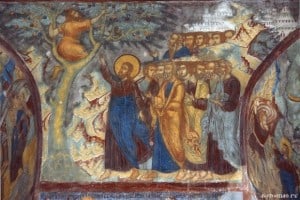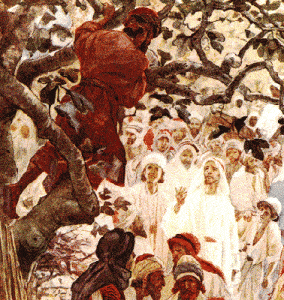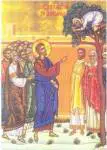St. Nikolai: Notice the way in which Zacchaeus confessed his sin. . . .

Notice the way in which Zacchaeus confessed his sin. He did not say: “Lord, I am a sinful man!”, or “Avarice is my sickness!” No; but, showing the fruits of repentance, he thus confessed his sin and his sickness: “Behold, Lord, the half of my goods I give to the poor.” is not this a clear confession that riches are his passion? “And if I have taken any thing from any man by false accusation, I restore him fourfold.” Is not this a clear confession that his riches were acquired in a sinful manner? He did not, before this, say to the Lord: “I am a sinner, and I repent.” He confessed this silently to the Lord in his heart, and the Lord silently received his confession and repentance.
It is of more importance to the Lord that a man acknowledge and confess his sickness and cry for help in his heart than with this tongue, for the tongue is capable of deception, but the heart is not.
+ St. Nikolai Velimirovich, “The Thirty-Second Sunday After Pentecost: The Gospel on Repentant Zacchaeus, Luke 19:1-10,” Homilies Volume 1: Commentary on the Gospel Readings for Great Feasts and Sundays Throughout the Year
St. Nikolai: Notice the way in which Zacchaeus confessed his sin. . . . Read More »



